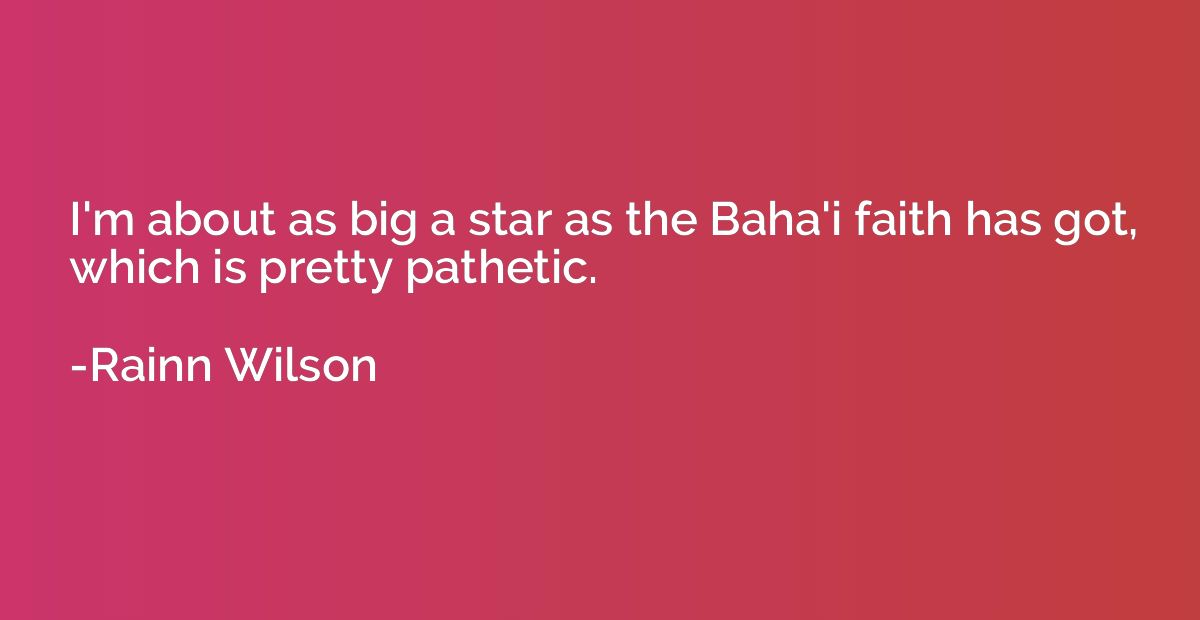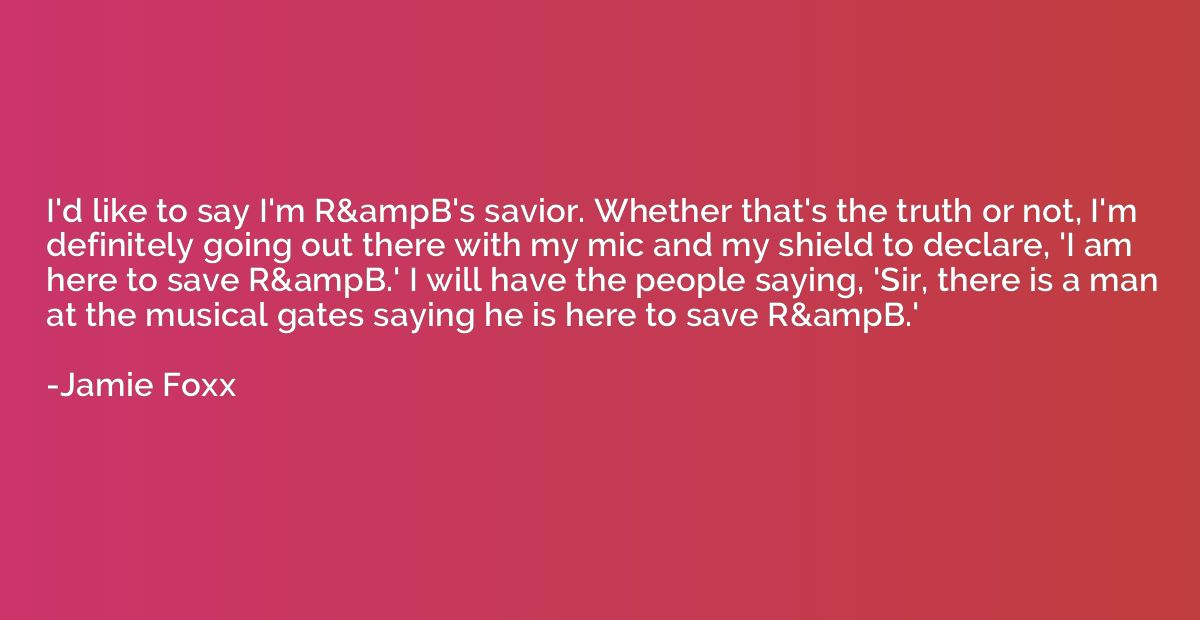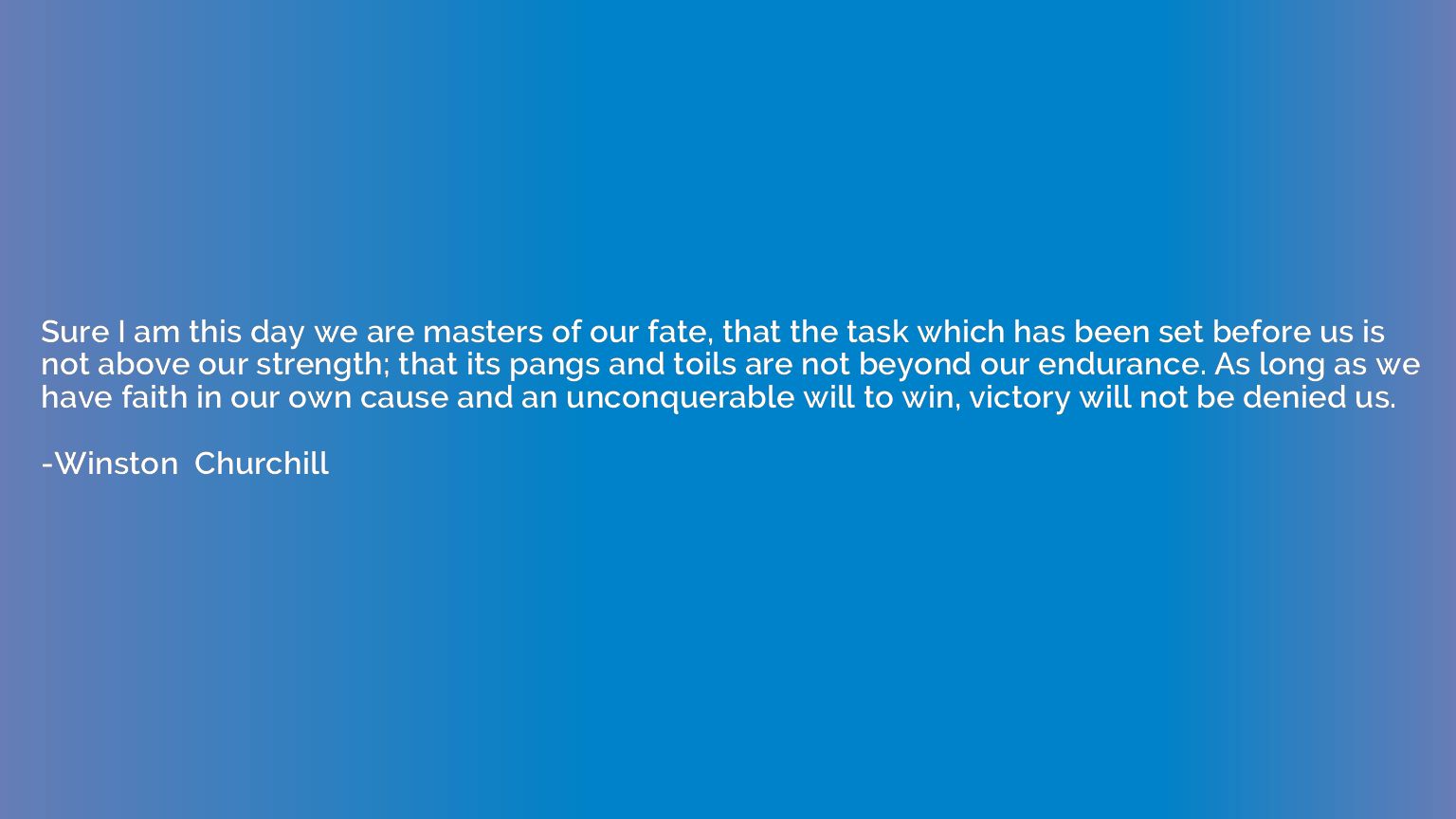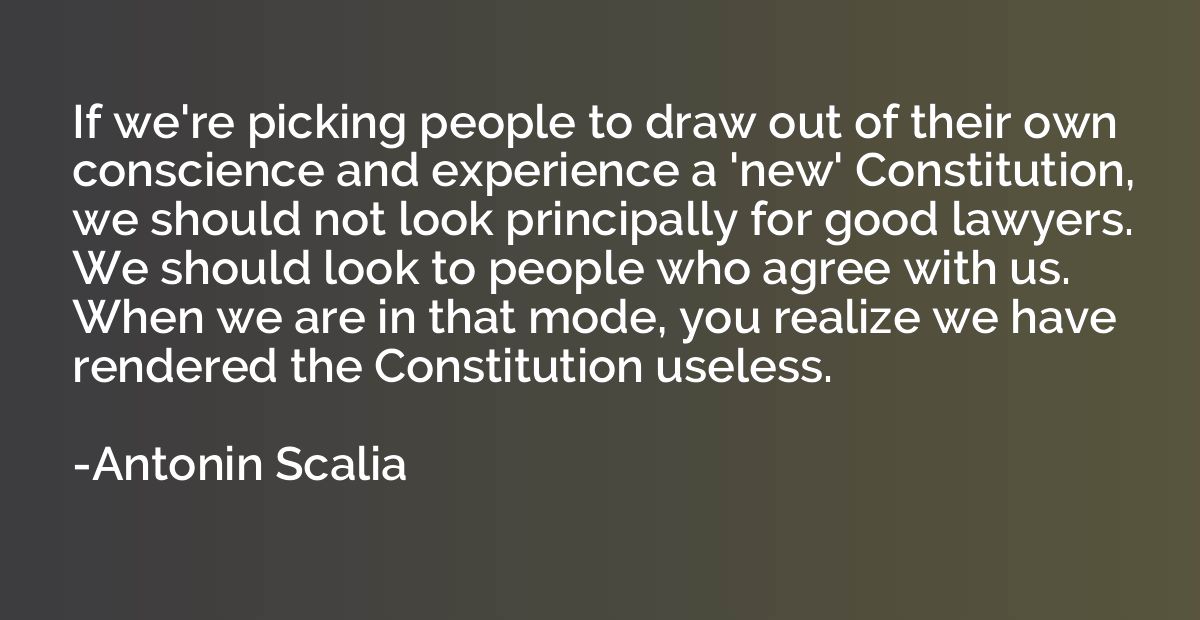Quote by George Gilder
Surely women's liberation is a most unpromising panacea. But the movement is working politically, because our sexuality is so confused, our masculinity so uncertain, and our families so beleaguered that no one knows what they are for or how they are sustained.
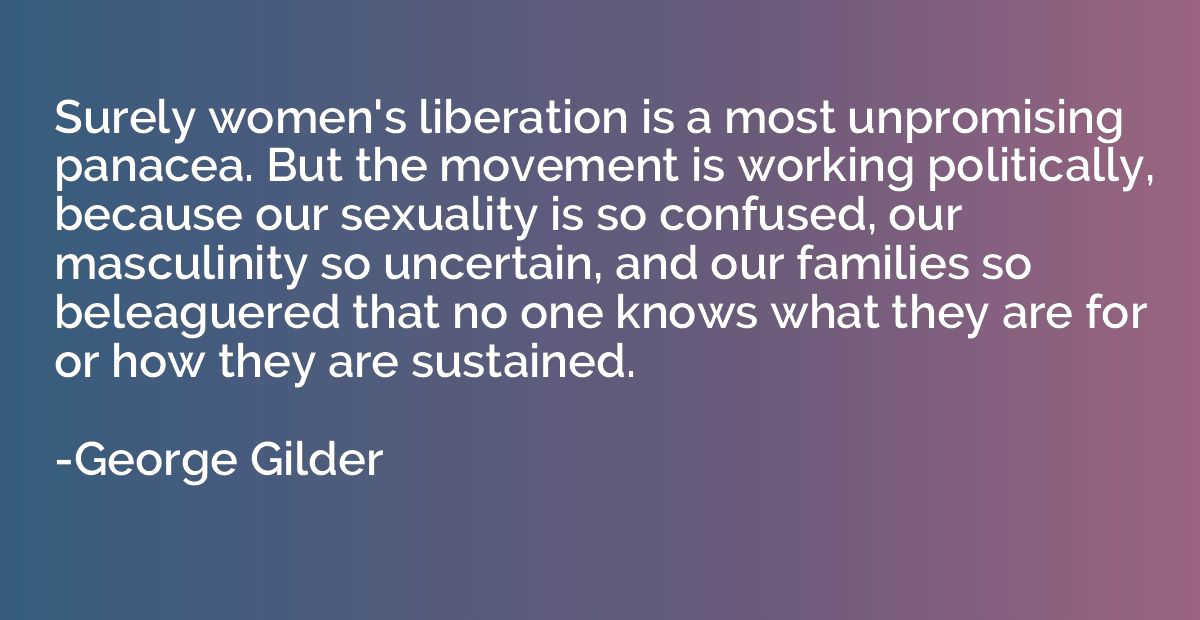
Summary
This quote suggests that although women's liberation may not seem like a promising solution, it has gained political traction due to the current state of confusion surrounding sexuality, uncertainty regarding masculinity, and the challenges faced by families. It implies that these societal elements have caused a loss of understanding about purpose and sustenance, thus making the women's liberation movement resonate with many individuals. Ultimately, the quote highlights how societal issues contribute to the movement's political success, regardless of the effectiveness of its proposed solutions.









